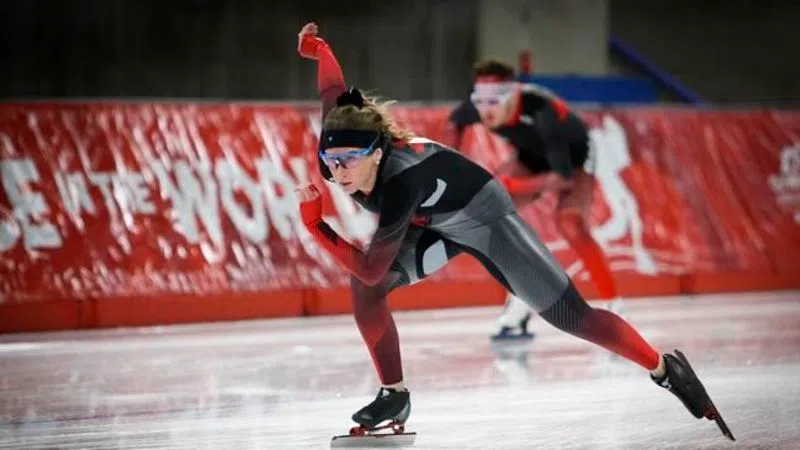
Canadian speedskater Ivanie Blondin back on track after Olympic disappointment
CALGARY — Ivanie Blondin is in a good place. She wants to stay there.
With the help of some four-legged friends, the devastation the speedskater felt after 2018 Winter Olympics is shrinking in her rearview mirror.
A career start to this World Cup season is validating her efforts. The 29-year-old from Ottawa has amassed 10 medals, including six gold.
Blondin won gold in five straight races — two mass starts and the 1,500, 3,000 and 5,000 metres — in Nur-Sultan, Kazakhstan, and Nagano, Japan, earlier this month.


